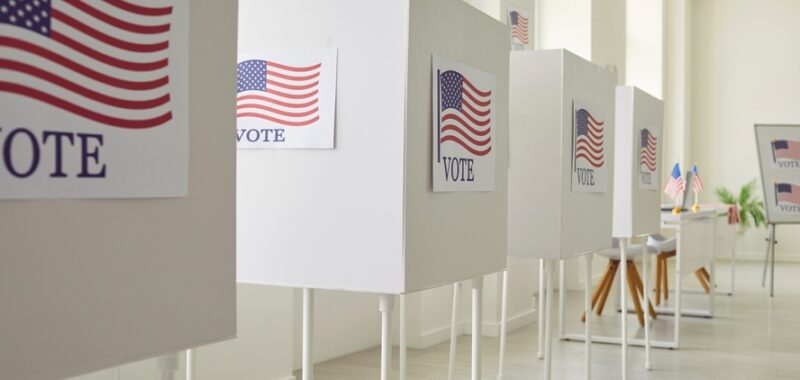My parents, both physicians, embody the American story. After completing medical school in Iran, they were recruited to the U.S. in 1968 to fill the gap left by doctors sent to Vietnam. Building a life from the ground up, they became pillars of their patients and communities — and our family, too. In 1992, they became citizens, finally gaining the right to vote, and they’ve never missed an election since, knowing their vote represents their values and beliefs, shaping the future of health care. Their unwavering commitment to civic engagement has profoundly influenced me. They were my role models, and I’ve come to understand the true power of being an advocate. Civic engagement is healthcare, even when it’s outside the ER or hospital room.
As physicians, we are trained to advocate for our patients’ health. This may be as simple as helping someone in the exam room—who may feel lost in this complex health care system and who may not feel like their voice matters—and showing them how to register with a simple QR code. Helping our patients and empowering them to use their voices gives them the tools to feel engaged in their health and futures.
Advocating for patients extends far beyond the exam room, however. Health care is on the ballot every election. From Medicare reimbursement cuts to the reproductive rights of women, elected officials make decisions that impact our ability to provide the best care. That’s why it’s so crucial for us, as physicians, to not just encourage others to vote but to lead by example and vote ourselves.
We have often fallen short at the ballot box. According to a study published in JAMA Network Open in 2022, physicians consistently have voted at lower rates than the general population. From 2000 to 2020, our voter turnout averaged 57.4 percent, while the general population’s was 63.4 percent. In an era where so much of health care is determined by policies, participation in elections has never been more essential. There is some good news — things are starting to change. Physician voter turnout in the 2020 election surpassed the general population for the first time in 20 years. But we still have work to do, especially as we head into what may be our most important election cycle when it comes to health care.
Many physicians cite time constraints and demanding jobs as reasons for not voting. Fortunately, there is help. Organizations like Vot-ER and the Civic Health Alliance are stepping in to help doctors overcome these barriers — and to help our patients do the same. Vot-ER, a nonpartisan nonprofit, offers a free badge with a QR code that allows patients to check their voter registration, register to vote, or request a mail-in ballot. The Civic Health Alliance is similarly dedicated to improving civic engagement within the health care community. These initiatives not only empower us to advocate for ourselves but also help our patients participate in the political process, recognizing the deep connection between public health and voting. The ACP has developed a toolkit to help, providing resources for voter registration and tools to help our patients vote. Beyond voting, there are other ways physicians can get involved. Phone banking, text banking, and canvassing are just a few options, and organizations are always eager to have physicians join their efforts.
Electoral participation isn’t just about our rights as citizens; it’s about our duty as health care providers. We see firsthand the barriers our patients face in accessing care, affording medications, and navigating a health care system that is often stacked against them. We are in a position to advocate for policies that break down these barriers, ensuring that health care is accessible and equitable for all.
Our patients trust us with their lives. It’s time to show them that we’re fighting for their right to access quality care, not just at the bedside but at the ballot box. This election, let’s make sure our voices and our patients’ voices are counted. Let’s vote, encourage our colleagues to vote, and empower our patients to do the same. Civic engagement is public health. Together, we can advocate for a health care system that truly serves everyone.
Halleh Akbarnia is an emergency physician.


